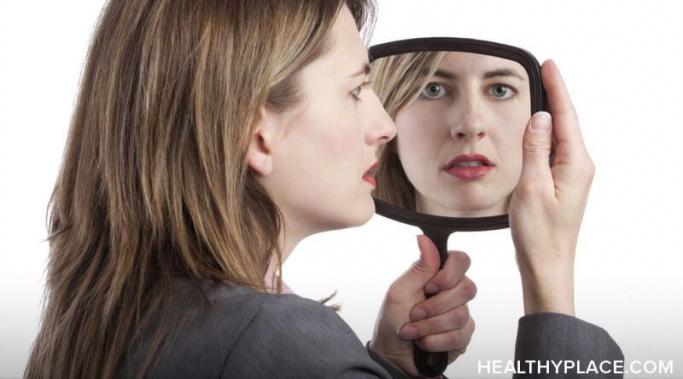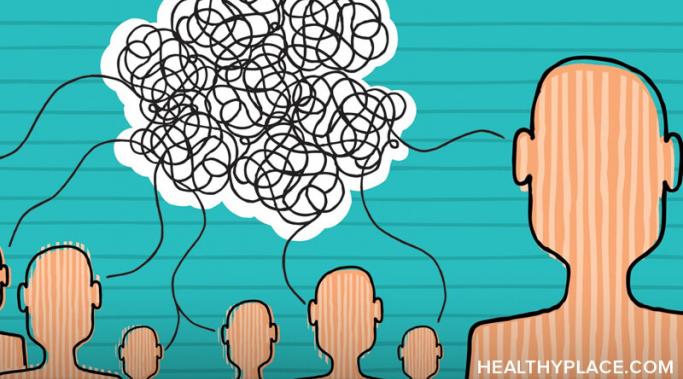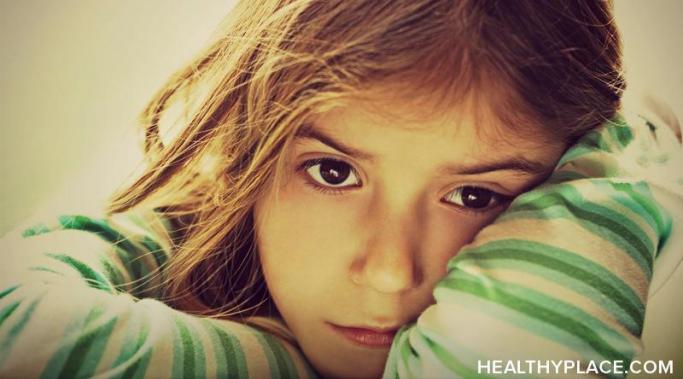It's hard to know how bad a bipolar episode is when you're living it. That's because it's your brain that is sick. It is your perception that is skewed. Other people may look at you and think it's clear how sick you are and how truly bad a bipolar episode is, but these people are fundamentally missing the problem: you're so sick that you can't see how sick you are.
Impact of Bipolar
Recently, I've had to talk about bipolar as a disability way too much. I talk about it online as part of my advocacy work, but that's not the issue. I have no trouble talking about it in general. The issue is talking about my bipolar as a disability in real life. The issue is talking about it to a psychiatrist, to a family doctor, to a nurse practitioner, to whomever I need to in order to get the help I need.
Because of bipolar and depression, I have a lack of motivation. Lack of motivation is not technically a symptom of depression according to the "Diagnostic and Statistical Manual of Mental Disorders, Fifth Edition" ("DSM-5"), but in my experience, it's highly correlated. I must admit, I harshly judge this as being a personal flaw. Here's a look at how depression and a lack of motivation are linked and how a lack of motivation isn't really a personal flaw at all.
I think hot weather makes bipolar disorder worse. It seems to do this in multiple ways. Some of this is my opinion, while some of it is based on evidence. Regardless, though, hot weather definitely makes my bipolar worse.
Bipolar often makes me very irritated, and I suggest you not talk to me about it. Okay, I'm just kidding about that last part, but what I will say is that when I'm highly irritated because of bipolar disorder, I don't want to talk about it or anything else. And while irritation doesn't sound like the worst bipolar symptom, I can attest to the fact that it definitely impacts one's quality of life.
It's not uncommon for people with bipolar disorder (and other mental illnesses) to think they're fine and they don't need bipolar medication. There are several reasons for this, and it can happen at any time during treatment. This thought pattern can truly hurt people. So, let's take a look at why some people with bipolar disorder think they don't need bipolar medication.
I suffer from doctor anxiety. Well, I suppose I suffer from generalized anxiety, but, certainly, some of it belongs to doctors specifically. And this week, I have a great (mis)fortune of meeting two new doctors. Meeting doctors is part of healthcare and part of trying to keep yourself as healthy as possible, so, in that sense, it's a positive thing. On the other hand, the anxiety I feel around doctors is looming large.
It's hard to look forward with bipolar disorder sometimes. Sure, if you happen to be hypomanic, or manic even, looking forward might make you feel great. You might feel like your hope is boundless and your life is limitless. If, however, you are in a depression, or even if you're euthymic (not in a bipolar mood episode), you might find looking forward with bipolar to be very hard indeed. I'm here to say, though, while it can be hard to be positive about the future with bipolar, it isn't impossible to see a glimmer or two on the horizon.
Have you tried (and maybe failed) to get your health boundaries respect in the past? If so, you know how tricky it can be. In my last post, I talked about setting health and mental health boundaries. I acknowledged their importance, particularly now, in the midst of a pandemic. Today, I want to talk about how to communicate with others such that they respect your health boundaries.
I recently had to hire someone to help clean my apartment, and this made me feel like a failure. And when I say failure, I mean I felt like an abject failure. I actually cried when I made the appointment. I don't want someone in my space. I don't want someone touching my things. I don't want someone doing things I should be capable of doing. In short, I don't want help. Help makes me feel like a failure.









